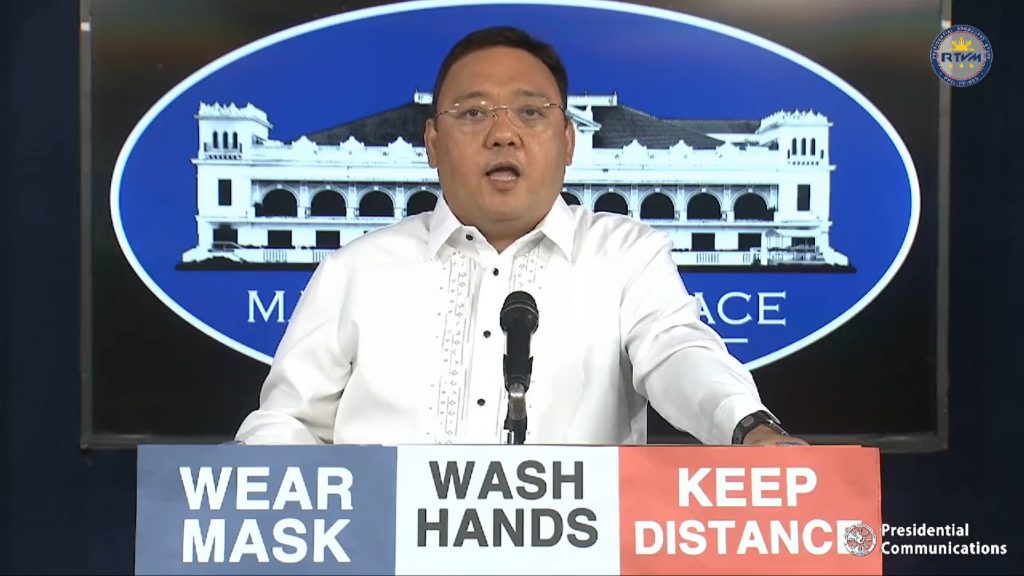
Malacañang on Tuesday said vaccine hesitancy among Filipinos could have been fueled by the Dengvaxia controversy.
“Hindi po natin madi-deny na mayroon pong influence [ang Dengvaxia issue],” Palace spokesman Harry Roque said in a virtual presser.
“Kaya nga po ang panawagan ng mga tunay na eksperto… huwag po nating pakinggan iyong mga self-proclaimed experts kasi kapag naaprubahan po iyan ng FDA (Food and Drug Administration) lalo na for general use at ginagamit sa buong mundo, wala pong dahilan para matakot tayo sa mga ganiyang bakuna,” he added.
Results of a Pulse Asia survey released earlier this month showed that only 47 percent of Filipinos were “not inclined” to get vaccinated for Covid-19.
Before the country’s Covid-19 vaccination program kicks off, Health Secretary Francisco Duque III said the government would launch a “massive” information campaign to encourage Filipinos to line up for the vaccines.
Roque also urged the public to be critical in receiving information about vaccines.
“Totoo po ang mga doktor ay qualified po na magbigay ng medical advice pero para po sa mga vaccines, mayroon po talaga tayong mga experts diyan na karamihan ay doktor din pero mayroong additional na pag-aaral para maging eksperto o tawaging ‘vaccinologist’. Iyon po ang pakinggan natin,” he said.
Under then-President Benigno Aquino III, the Philippine government in 2016 launched a dengue vaccination campaign using Sanofi Pasteur’s Dengvaxia vaccine.
About 830,000 public schoolers were administered the vaccine.
The vaccination program was put to a halt in 2017 when Sanofi Pasteur said its vaccine could put previously uninfected people at a higher risk of a severe case of dengue fever.
In November 2017, Sanofi said its analysis based on six-years worth of clinical data “confirmed that Dengvaxia provides persistent protective benefit against dengue fever in those who had prior infection. For those not previously infected by dengue virus, however, the analysis found that in the longer term, more cases of severe disease could occur following vaccination upon a subsequent dengue infection.”
In 2018, the University of the Philippines-Philippine General Hospital conducted a probe into the deaths of 14 children with prior Dengvaxia vaccination. It found three deaths that could be causally associated with “immunization that is vaccine product-related,” and two of which “implicated vaccine failure.”However, the Department of Health in 2019 said there was no proof that the deaths were directly caused by Dengvaxia. John Ezekiel J. Hirro